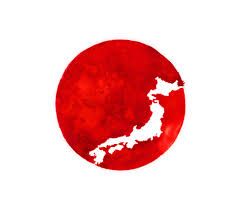The 9th Foreign Ministers' Meeting of the "Central Asia plus Japan" Dialogue in the context of the war in Ukraine

The "Central Asia plus Japan" Dialogue was established in 2004 based on the belief that regional cooperation is essential for Central Asian countries to achieve "open, stable and autonomous development," and since then Japan and Central Asian countries have held many discussions in order to promote regional cooperation. The foreign ministers of all five countries attend theese foreign ministers' meeting, with highly interest appreciating the role that Japan performs as a "catalyst" for regional cooperation. The "Central Asia plus Japan" Dialogue is evolving into a venue for promoting practical cooperation.
On December 24, the 9th Foreign Ministers' Meeting of the "Central Asia plus Japan" Dialogue, chaired by Minister of Foreign Affairs HAYASHI Yoshimasa, was held at the Iikura House. Following the meeting, a joint press occasion and working lunch were held. The overview of the meetings is as follows.
In the Foreign Ministers' Meeting, the Ministers first discussed the Agenda Item 1 " Cooperation between Japan and Central Asia in the midst of drastically changing international circumstances" and then the Agenda Item 2"Cooperation to address traditional risks of instability".
(1) In his opening remarks on Agenda Item 1, Minister Hayashi stated that the international community has been affected by Russia's agrresion against Ukraine in various aspects, including food and energy supplies, and that the impact is particularly significant in Central Asia, which has close historical and economic ties with Russia. In this context, Minister Hayashi stated that Japan would like to promote a new model of development with particular emphasis on "investment in people" and "quality of growth" in order to achieve sustainable development in Central Asia. The foreign ministers of the Central Asian countries expressed their interest in further strengthening cooperation with Japan towards sustainable development in their respective countries. They also expressed their interest in the possibility of creating a virtuous circle in which Central Asian human resources can contribute to the economic development of their home countries by utilizing their experience in Japan, including through the use of Japan's Specified Skilled Worker System and Technical Intern Training Program. In addition, they expressed their interest in cooperation in the field of decarbonization through the Joint Crediting Mechanism (JCM) . In light of the difficult international situation, the participants also exchanged views on the future direction of cooperation regarding the ""Trans-Caspian International Transport Route", a transportation route that does not pass through Russia, and agreed to hold a symposium on this issue in the first quarter of next year within the framework of the "Central Asia plus Japan" dialogue to further deepen discussions.
(2) Discussions continued on the Agenda Item 2"Cooperation to address traditional risks of instability." The participants agreed on the need to respect the rights of all Afghans, including women and minorities, and to build an inclusive political system, and also expressed their appreciation for the 600 million yen grant announced last week to promote community empowerment and intra-regional cooperation to prevent violent extremism in five Central Asian countries, as well as for Japan's continued support in the areas of border management and livelihood improvement in border areas. They also expressed their appreciation for Japan's continued support in the areas of border management and livelihood improvement in border areas.
At the working lunch following the joint press conference, the Ministers exchanged views on agenda item 3, "Regional and International Situation." Minister Hayashi explained Japan's position on the international situation, including the response to Russia's aggression against Ukraine and the situation in East Asia, and frankly exchanged views on cooperation between Japan and Central Asia towards maintaining and strengthening a free and open international order based on the rule of law.
The Foreign Ministers of Japan and the five Central Asian countries then affirmed the importance of mutual cooperation as partners in maintaining and strengthening a free and open international order based on the rule of law, and agreed on the importance of upholding the UN Charter and other international laws such as the independence, sovereignty, and territorial integrity of all countries, and the peaceful settlement of international disputes. They also noted the importance of the non-proliferation regime and confirmed their intention to cooperate in the area of disarmament. Regarding North Korea, they reaffirmed their commitment to the complete denuclearization of North Korea in accordance with UN Security Council resolutions and the importance of resolving humanitarian issues of concern to the international community, including the abduction issue. After the meeting, a joint statement was issued by the foreign ministers of the six countries.
The next Foreign Ministers' meeting will take place in Kazakhstan.
(Reference1)"Central Asia plus Japan" Dialogue
(1) From the viewpoint that regional cooperation to resolve common regional issues is indispensable for the stability and development of Central Asia, Japan launched a dialogue framework in 2004 to promote such regional cooperation (the first Foreign Ministers' Meeting was held in Kazakhstan in August of the same year).
(2) Eight Foreign Ministers' Meetings of the Dialogue have been held so far. The most recent meeting was the 8th meeting (online) held in April 2022. The last face-to-face meeting was held in Tajikistan in May 2022. It is the third time that the meeting has been held in Tokyo and first time in 10 years since the 4th Foreign Ministers' Meeting in November 2012.